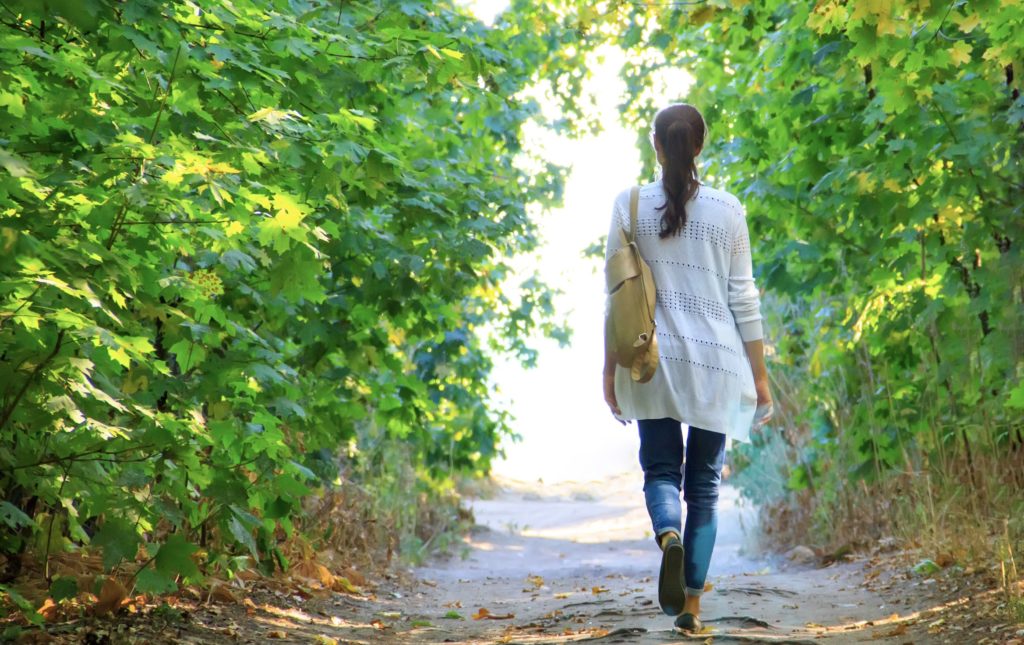“It is solved by walking.” — St. Augustine
For decades I have considered a longish walk part of my daily routine. By “walk,” I don’t mean the fetishistic activity that involves a water bottle carrier, a backpack, and a Fitbit. I grab my sunglasses, walk out the door, and give myself over to the sheer, exuberant wonder of the enterprise.
Similarly, when traveling, I don’t care about fancy hotels, shopping, or even, much, food. I want to walk. I want to peer around corners, absorb the shadows, look at the people, sniff the air. I want to tire myself out on the paths, roads, alleys, streets. I want to take all that the place offers and give back a bit of my own body and blood in return.
In “A Philosophy of Walking” (Verso, $19.95), French professor of Philosophy Frédéric Gros reflects upon some of the many thinkers and writers throughout history who have also considered walking essential to their work: Nietzsche, Rimbaud, Jean-Jacques Rousseau, Thoreau.
Right up front, Gros establishes that walking is not a sport. Nobody “wins” at walking. Walking is by its nature solitary, and brings (at least inner) silence. “When you are walking, there is only one sort of performance that counts: the brilliance of the sky, the splendor of the landscape.”
You can’t multitask when you’re walking, really walking. Thus, even a short walk offers freedom from the constraints of daily life: the scheduling, the technological glitches, the errands.
When you go out for a walk, writes Gros, “You say goodbye to your work. You close the books and files, and you go out. Once outside, the body moves at its own rhythm and the mind feels free, in other words, available.”
In longer walks, we respond to the call of the wild. Here, “there is the promise of meeting a freedom head-on as an outer limit of the self and of the human, an internal overflowing of a rebellious Nature that goes beyond you.”
Walking offers what Gros calls “the freedom of renunciation.” Because walking is by its nature slow, it “alienates” us from speed. Therein lies its value.
In a chapter devoted to Thoreau, Gros — an inveterate walker himself — observes: “What profit is obtained from a long forest walk? None: nothing saleable is produced, no social service is rendered which needs to be rewarded. … Nevertheless the benefit to me, to my life … is immense: a long moment in which I look into myself, without being invaded by volatile, deafening hassles or alienated by the incessant cackle of chatterers. I capitalize myself with myself all day: a long moment in which I remain listening or in contemplation: and thus, Nature lavishes all its colours on me. On me alone. Walking magnifies receptiveness.”
Walking gets us away from our screens. Walking invites us to look within. The repetitive movement frees us to access deep philosophical and moral truths.
Nietzsche, who walked up to four hours a day, wrote, “Sit as little as possible; do not believe any idea that was not born in the open air and of free movement. … Sitting still … is the real sin against the Holy Ghost.”
The avant-garde Symbolist poet Arthur Rimbaud once said of himself: “I’m a pedestrian, nothing more.” He walked through London, Paris, Belgium, crossed the Alps, and traversed African deserts on foot.
After one especially brutal trek — he was living in Yemen — his right knee swelled to the point of excruciating pain. Back in France the leg was amputated. He died at 37 of bone cancer in Marseille, “passing through,” or so he told himself, en route back to Africa. “Quick, they’re expecting us!” were his last words.
In addition to his tomes on philosophy, Rousseau, another devoted pedestrian, wrote a book in the late 1700s called “Reveries of the Solitary Walker.”
Even when we’re aged, Gros points out, and perhaps tired of thinking, walking provides respite and solace. “Although [Rousseau] had become an old man, he liked nothing so much as going for long walks, to kill the days. When there is really nothing left to do or believe, except to remember, walking helps retrieve the absolute simplicity of presence, beyond all hopes, before any expectation.”
Gros writes of the long-distance walk as well: the road to Compostela, the marches of Gandhi, the nineteenth-century Russian pilgrim who introduced the “Jesus Prayer” to the West.
But for all his wonderful profiles of those who walked before him, some of the most moving passages are those in which he describes his own discoveries.
“Walking is to experience these quietly and humbly insistent realities — the tree growing between rocks, the watchful bird, the streamlet finding its course — without expecting anything. … You are facing a mountain, walking among great trees, and you think: they are just there. They are there, they didn’t expect me, they were always there. They were there long before me and they will still be there long after me.”
Urban walking may offer different views, but the sense of dipping into eternity is available to us all, as long as we’re willing to step outside, put one foot in front of another, and lift up our heads. For right here in the color, chaos, and cacophony of Los Angeles, we may discover — our redemption is at hand.

